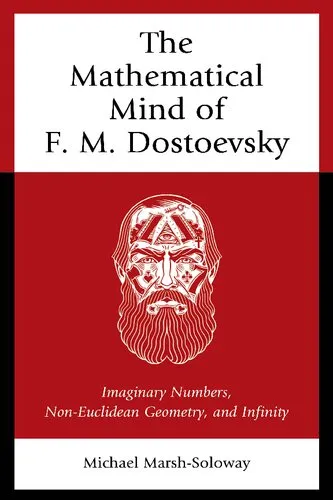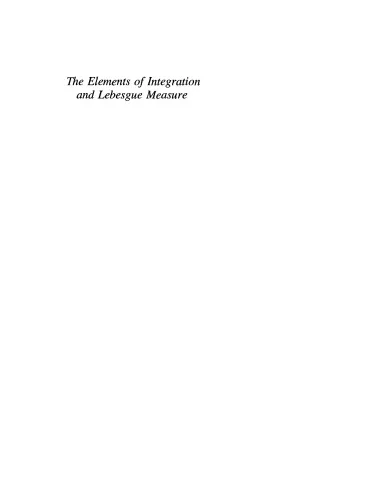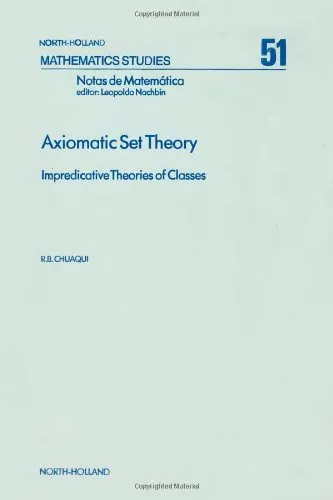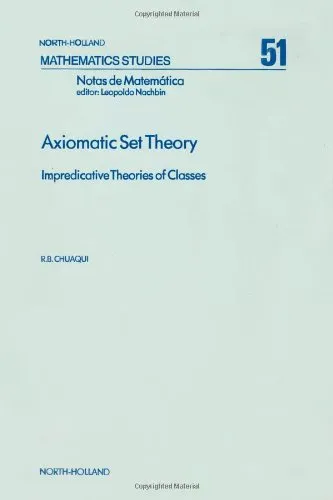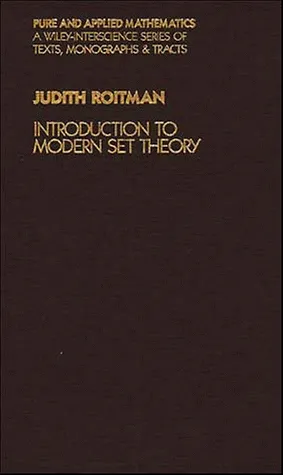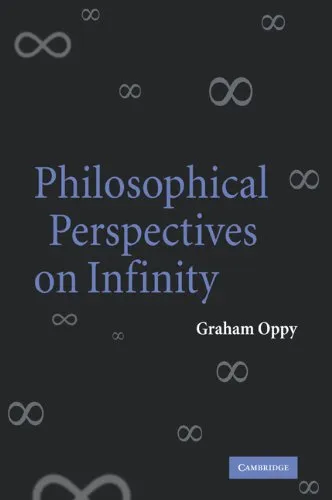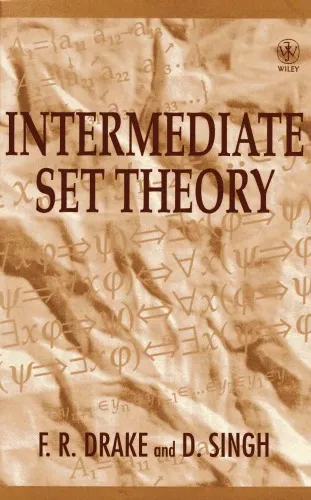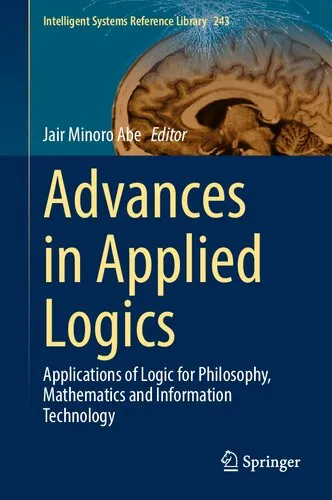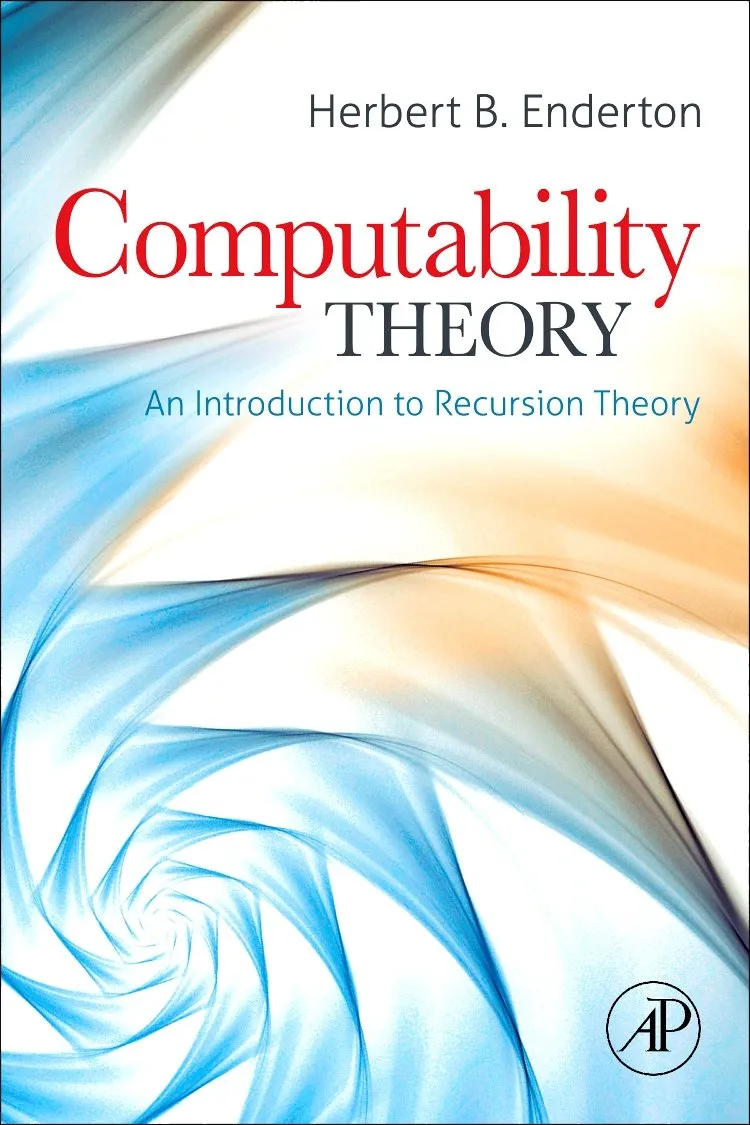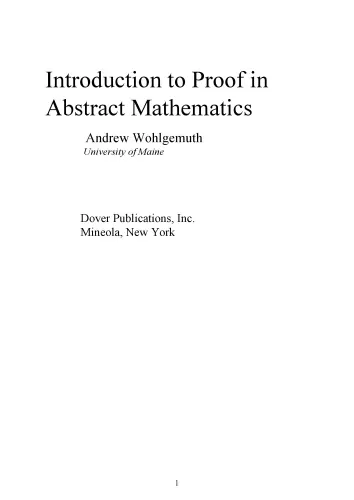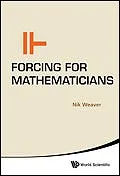The Mathematical Mind of F. M. Dostoevsky: Imaginary Numbers, Non-Euclidean Geometry, and Infinity
4.7
بر اساس نظر کاربران

شما میتونید سوالاتتون در باره کتاب رو از هوش مصنوعیش بعد از ورود بپرسید
هر دانلود یا پرسش از هوش مصنوعی 2 امتیاز لازم دارد، برای بدست آوردن امتیاز رایگان، به صفحه ی راهنمای امتیازات سر بزنید و یک سری کار ارزشمند انجام بدینکتاب های مرتبط:
معرفی کتاب
کتاب "ذهن ریاضی ف. م. داستایفسکی: Imaginary Numbers، Non-Euclidean Geometry، و Infinity" سفری جداگانه و جدید به دنیای اسرارآمیز ریاضیات در آثار داستایفسکی است. این کتاب تلاش میکند تا رابطه مستقیم و پیچیده بین ادبیات و ریاضیات را بازتاب دهد و به بررسی آن بپردازد که چگونه تفکر ریاضی داستایفسکی در آثار ادبی او نمود یافته است.
خلاصهای کامل از کتاب
در این کتاب، تمرکز بر سه مفهوم اصلی ریاضیاتی است که در نوشتههای داستایفسکی به نوعی حضور دارند: Imaginary Numbers، Non-Euclidean Geometry، و مفهوم Infinity. نویسنده با بهرهگیری از دانش عمیق تاریخی و ریاضیاتی خود، نشان میدهد که چگونه داستایفسکی از این مفاهیم به عنوان ابزارهای فکری استفاده میکند. برای مثال، مفهوم Infinity در آثار فلسفی او مطرح شده و نشاندهندهی تفکرات عمیق او دربارهٔ ماهیت انسانی و بیپایانی دروننگرانه است. بخشهای مختلف کتاب با تحلیل دقیق و مستندات تاریخی، خواننده را به سوی فهمی جدید از آثار داستایفسکی هدایت میکند.
نکات کلیدی
- داستایفسکی و استفاده از Imaginary Numbers برای بیان پیچیدگیهای ذهنی و روانی شخصیتها.
- ارتباط بین Non-Euclidean Geometry و تصوراتی از فضا و واقعیت در رمانهای داستایفسکی.
- تعامل مفهوم Infinity با فلسفه دینی و اخلاقی در آثار او.
نقلقولهای معروف از کتاب
"تفکر ریاضیاتی داستایفسکی تنها برای فلاسفه یا ریاضیدانان نیست، بلکه برای هر کسی است که به دنبال فهم عمیقتری از انسانیت باشد."
"درک ریاضیات در آثار داستایفسکی به منزلهی دریافت نوعی زبان است که امور نادیدنی را برای ما قابل رؤیت میسازد."
چرا این کتاب اهمیت دارد
این کتاب برای افرادی که علاقهمند به تلفیق دانشهای مختلف هستند، اهمیت بسیاری دارد. این اثر نشان میدهد چگونه منطق ریاضی میتواند به تحلیلی عمیق و ژرف از آثار ادبی منجر شود. علاوه بر این، کتاب پلی میزند بین علوم انسانی و علوم دقیق، و برای افرادی که به دنبال درک ارتباطات بینالمللی بین رشتههای مختلف علمی هستند، منبعی ارزشمند است. به علاوه، این کتاب توانایی داستایفسکی را در استفاده از ریاضیات به عنوان وسیلهای برای کشف و بیان حقیقت پیچیده انسانی به تصویر میکشد.
Introduction
"The Mathematical Mind of F. M. Dostoevsky: Imaginary Numbers, Non-Euclidean Geometry, and Infinity" is a groundbreaking exploration into the lesser-known dimension of Fyodor Mikhailovich Dostoevsky's genius. Renowned as one of the greatest novelists of all time, Dostoevsky's works have delved into the intricacies of the human psyche, morality, and existential inquiry. This book, however, ventures into an extraordinary realm where literature and mathematics intersect, revealing how mathematical concepts influenced Dostoevsky's philosophical narratives and fictional landscapes.
Detailed Summary
This book challenges the conventional perception of Dostoevsky as solely a literary figure by illuminating his profound engagement with mathematical ideas. It uncovers the intriguing ways in which Dostoevsky employed mathematical principles as metaphors, tools of logic, and symbols of existential conundrums. Readers will journey through aspects of mathematics such as imaginary numbers, non-Euclidean geometry, and infinity, which serve not merely as abstract notions but as vital components in the thematic architecture of Dostoevsky's novels.
The narrative begins by contextualizing Dostoevsky's era, a time when mathematics was dramatically evolving. The book examines the influence of contemporary scientific thought on Dostoevsky’s work, revealing his fascination with the philosophical implications of mathematical innovation. Subsequently, it dissects specific works such as "The Brothers Karamazov," "Crime and Punishment," and "The Double," highlighting instances where mathematical themes subtly yet potently underscore the moral and ethical dilemmas confronted by his characters.
Key Takeaways
- Mathematics in Dostoevsky's writing is not purely numerical or logical but is deeply philosophical, merging with existential and ethical inquiries.
- The portrayal of infinity and the fourth dimension in his works reflects a unique fusion of science and literature, inviting readers to explore the concept of the infinite beyond its mathematical definitions.
- Dostoevsky's engagement with non-Euclidean geometry disrupts classical narrative structures, mirroring the complexities and chaos of human consciousness and morality.
- His use of imaginary numbers symbolizes the illogical and paradoxical elements of human nature, challenging the notion of absolute truth.
Famous Quotes from the Book
"Mathematics for Dostoevsky was akin to a divine language, an abstract yet compelling force that could unravel the mysteries of the human soul."
"Dostoevsky's novels are not just narratives; they are intricate tapestries where numbers, lines, and infinite possibilities merge with the profoundest of human questions."
Why This Book Matters
This work is pivotal as it unites two seemingly disparate fields—mathematics and literature—and positions Dostoevsky at this confluence, showcasing his multi-dimensional intellect. For scholars and enthusiasts of literature, philosophy, and mathematics, this book offers fresh insights into Dostoevsky's oeuvre, encouraging a re-interpretation of his classic works through a mathematical lens. It also highlights the broader cultural implications of mathematics in shaping philosophical thought, providing contemporary readers with tools to appreciate the interconnectedness of scientific and artistic disciplines.
By delving into "The Mathematical Mind of F. M. Dostoevsky," readers are invited to transcend conventional literary analysis and embrace a more holistic approach to understanding Dostoevsky, one that appreciates the brilliance of his mind not just as a storyteller but as a thinker engaged with the profound mathematical concepts that continue to influence our world today.
دانلود رایگان مستقیم
شما میتونید سوالاتتون در باره کتاب رو از هوش مصنوعیش بعد از ورود بپرسید
دسترسی به کتابها از طریق پلتفرمهای قانونی و کتابخانههای عمومی نه تنها از حقوق نویسندگان و ناشران حمایت میکند، بلکه به پایداری فرهنگ کتابخوانی نیز کمک میرساند. پیش از دانلود، لحظهای به بررسی این گزینهها فکر کنید.
این کتاب رو در پلتفرم های دیگه ببینید
WorldCat به شما کمک میکنه تا کتاب ها رو در کتابخانه های سراسر دنیا پیدا کنید
امتیازها، نظرات تخصصی و صحبت ها درباره کتاب را در Goodreads ببینید
کتابهای کمیاب یا دست دوم را در AbeBooks پیدا کنید و بخرید
1461
بازدید4.7
امتیاز0
نظر98%
رضایتنظرات:
4.7
بر اساس 0 نظر کاربران
Questions & Answers
Ask questions about this book or help others by answering
No questions yet. Be the first to ask!
